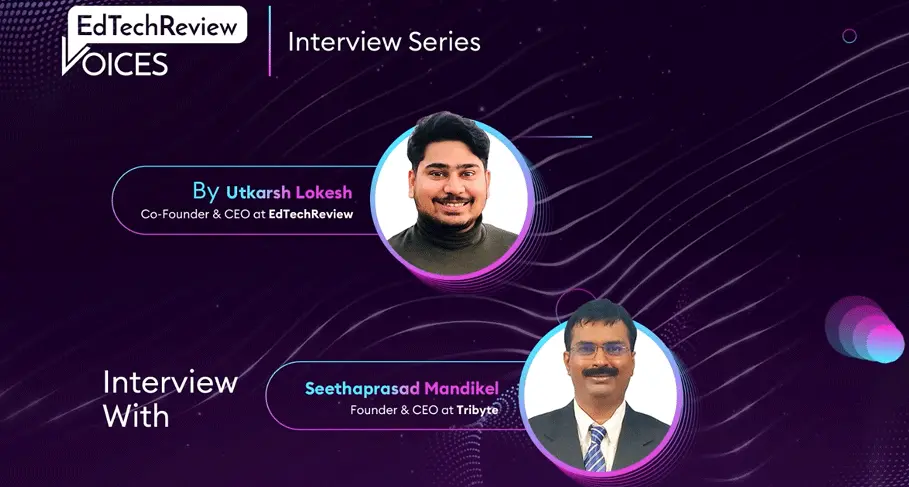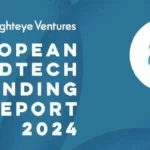GenAI’s transition from novelty to commodity is being felt across industries. The debate around ChatGPT’s place and impact on education is still unresolved. A common belief is that GenAI is poised to transform education. It learns tirelessly, adapting to individual needs and learning styles like a personal genie.
However, various challenges persist like biases in training data leading to unfair outcomes and more. Another key aspect that requires attention is the ethical consideration around data privacy and student agency. But the potential shines brighter! It can democratise learning. It can make learning captivating, tailoring experiences to ignite engagement and cater to diverse learning styles. Imagine a tireless AI tutor explaining complex concepts, a language assistant helping you master the language, or a research assistant scouring the web for tailored knowledge.
With tech like GenAI in education, teachers aren’t replaced; they’re empowered. GenAI handles repetitive clerical tasks, enabling them to focus on deeper engagement and individualised instruction. Imagine adaptive learning materials and assessments crafted by AI, allowing teachers to cater to each student’s unique needs.
All this can be done while ensuring quality. Transparency and ethical responsibility are the primary fundamentals. Controlled and diverse datasets for accurate training, understanding of the technology and its use, and human oversight remain crucial to implementing this game-changing technology effectively.
The future of education with GenAI will have immersive learning experiences powered by AR, VR and gamification supported by personalised feedback and assessments to create a more personalised, engaging, and equitable learning experience for all.
Tribyte, a torchbearer harnessing the power of GenAI to change the education paradigm, offers a future-ready learning management system integrated with a learning-focused chatbot—DASH, which aims to understand how you teach and learn.
Tribyte offers an innovative learning management platform with over two million registered users from 11+ countries in 10+ localised languages.
To understand more about Generative AI, its impact on Education and the upcoming innovations, Utkarsh Lokesh, Editor of EdTechReview, spoke to Seethaprasad Mandikel, the founder and CEO of Tribyte.
“Tribyte primarily focuses on how we make learning more personalised and engaging. Having been a part of the industry for over a decade, we have a few premium customers like Aakash, Vidya Mandir, and we have helped them start their digital journey. With the power of tech and almost 12 years of experience, we have a very stable learning management system that is scalable to many users,” he introduced.
Here are the key takeaways from their conversation.
How GenerativeAI is Currently Being Used in the Edtech Industry
“We are familiar with using the technology in various other indirect ways, but with the large language models, like the ChatGPT, GenAI adds a lot of dimensions.” He mentioned three primary beneficiaries of education: students, faculty and the organisation.
He says, “With AI in place, we can start thinking of how we can personalise learning and make it more adaptive, aligning it with students’ needs. Similarly, from the faculty’s perspective, there were a lot of mundane tasks like grading reporting and analytics can be automated. From the institute’s perspective, it becomes easier to tap into potential students through predictive analytics. Today, even Tier 2 institutions are using powerful analytics to train students who board onto their institute to achieve commendable results. AI enables all of this. So, there is an impact on all three stakeholders where AI can significantly impact in improving each of the roles.”
Challenges Facing Institutions
Online learning had a “single size fits all” approach in the initial stages, where the same course material was given to all students. Personalisation was very limited. But with AI in place, personalisation is possible. As per Seethaprasad, the biggest challenge was the learning model.
He says, “We developed adaptive learning three years back, but it was not fully usable because of the fundamental challenges of having a huge amount of content with varying needs that cater to every student’s individual learning style. Now, with AI with large language models, when you give all input to this technology and train, you could generate content per the students’ needs.”
He defines identification and remedial for the gaps as the key challenge.
He further adds, “When providing education at a large scale, the challenge is providing individual attention to students. Now, with AI coming in place, generating content like MCQs on varied topics is possible. The AI system generates content which can be validated once and put in place.”
The next is adaptability.
He says, “When the user is learning, somebody has to follow the user, find out where the gaps are and then start changing the content aligned to the user’s needs. A human cannot do it, whereas the system can automatically adapt the learning material or a learning path to the learners’ needs.”
Measures to Ensure Quality and Relevance of the Content Generated by GenAI
The quality and relevance of AI-generated content are critical to implementing, adopting, and effectively using GenAI in education. The content must be appropriate and relevant for the learners.
Speaking on ensuring the quality of AI-generated content, Seita Prasad says, “The process is still not fully automatic. What we do is we give this tool to the faculty that can generate content, and then they do one human touch. When we talk about a large language model, it typically gives output based on the data on which it is trained or data which you’re going to feed in. We follow something called RAG (Retrieval-Augmented Generation), where the context is fed for every question, and we ask the AI to generate a response within the context. This is done to improve the response quality, accuracy and context of the response generated by the AI.”
Being in a phase where AI is not fully trusted yet, he further explained 4 critical aspects of ensuring the quality and relevance of content: relevancy, quality, depth and a final human touch that ensures nothing is wrong.
He says, “The rate at which the technology is changing, the absorption is very difficult. The change and potential are tremendous. It’s very hard to believe that tech can do a lot of stuff, but that’s the evolution pace at which things are moving. For now, I’m in for having a human. That’s where you do one final pass and have systems that always validate or verify the relevancy. At the same time, it’s equally important to give feedback to it. This continuous feedback cycle makes both systems evolve, and you will reach a point where the systems do exactly what you need them to.”
Current Trends and Future Innovations in GenAI Learning
Speaking of current trends and potential innovations in GenAI, he mentions how large language models (LLMs) are purely text-based, but the newer ones can take images as well. The big unexplored thing he predicts is if AI can start detecting emotions.
He says, “Let’s say there’s a virtual tutor, and the system finds out that I’m under stress or need help. This is where the emotional part, the empathy part, comes into play. That’s futuristic and something which I think requires a lot of evolution. But I think this will start with models coming into place where the vision is becoming more and more powerful. With this in the play, many new things would start coming, changing how education is delivered.”
Generative AI Co-Existence with Other Emerging Technologies
Various technologies like Augmented Reality, Gamification, and Virtual Reality are advancing to create a holistic learning experience for students. With the emergence of GenAI, analysing the place for these techs has been questioned for some time.
Sharing his insights on this, Seethaprasad says, “They go hand in hand because AR and VR are all about immersive learning. At the same time, AI is more about personalisation. When you put them together, it will be a personalised, immersive learning experience. Imagine a virtual tutor coming in front of you and showing you the models that suit your needs. AR, VR and AI, going hand in hand, would largely enhance learning. So, I believe AR, VR and AI can take learning to the highest level possible.”
Recommendations for Education Stakeholders to Harness the Power of GenAI
Speaking on recommendations to harness the power of GenAI, Seethaprasad shared insights on three key parameters, i.e., right investment, right training and good feedback loop that can help get the best learning outcome harnessing GenAI.
He says, “From the Education Institute’s perspective, the first thing is to get rid of resistance. It is going to happen. They must put in the required infrastructure or investment to be ready to make the best of this technology. So, the first step is the faculty training to understand this technology and how they can adapt and learn to use it in their day-to-day tasks. Next is putting the necessary investment in the technology to use AI itself. Lastly, having a feedback loop where all the stakeholders, like the parent, the student, and the faculty, give feedback on the system they have put across can help the system evolve over time, making it better.”
DASH and How Is it Different from Other Available GenAI Assistants
DASH (Doubt Assistance and Solution Helper) by Tribyte is a generative-AI-based education and learning support system that operates stand-alone like ChatGPT or seamlessly integrates into the learning management system, working as a perfect learning companion.
Speaking about DASH, he says, “Being in the industry for 12 years and facing multiple pain points and challenges where we could not put tech to use, we have addressed most of our challenges through DASH. Dash is primarily an AI engine which integrates with the LMS and is built on a large language model. So, some of the challenges I discussed, the content generation, a virtual tutor, or the ability for students to get notes or similar questions, have all been built in DASH. It’s like a virtual tutor for a student who is available all the time to help improve the learning outcome at any point. From the faculty’s perspective, it behaves more like an assistant for the faculty, helping them to grade assignments or helping them to localise the content to a different language or do a lot of repetitive tasks like generating an index or making the video itself more interactive by putting questions.”
How Tribyte Personalised DASH for Different Domains
Addressing GenAI challenges peculiar to different verticals or geography, Seethaprasad says, “No single tech or no single styled content works for all students and across verticals. It has to be customised.”
Sharing their implementation, he adds, “We have taken it live in the medical domain as well as in the K12 domain, and the amount of learning we have got is fascinating. Talking about medical sector use cases, it’s primarily MBBS and postgraduate. The way the responses must be generated for a medical postgraduate student differs from how you would need them for a K12 scenario. So, the key is how the prompts must be built. The prompts for a K12 student are more conversational, whereas in a medical, it’s more transactional.”
Unlike other chatbots, DASH only works on the learning material accessible to the learners as part of the courses or curriculum and responds to queries based on this domain-specific information only, thereby limiting responses strictly to academics.
He adds, “I would say each vertical requires a customisation, and DASH is built in such a manner that this customisation can be done very easily sitting next to the specialist of the domain.”
Final Thoughts and Vision to Make Learning Personalised and Adaptive through Tribyte
Sharing his vision, Seethaprasad says, “Putting AR, VR, and AI together is something which we are working on, but we are in the very beginning stages of that. So that would change the way people learn. We are also continuously evolving with the need and pace of tech, but as I said, the primary goal of Tribyte is to make learning more personalised and engaging. With that goal, we will be working on more and more tools to help the faculty and students go along this journey across verticals.”
Hope this was insightful to understand about the AI, its potential in education, its current state and the future.
Stay tuned for more such informative conversations.
Also Read: An AI Upgrade for Your LMS – DASH – Adaptive Learning Companion for Faculty & Students


